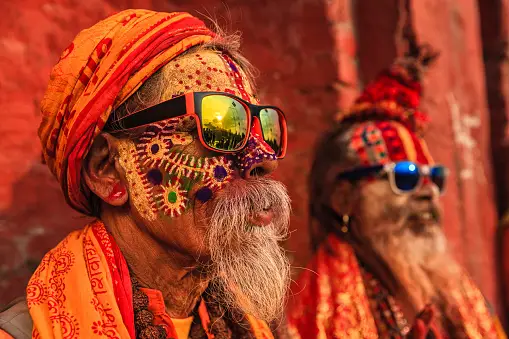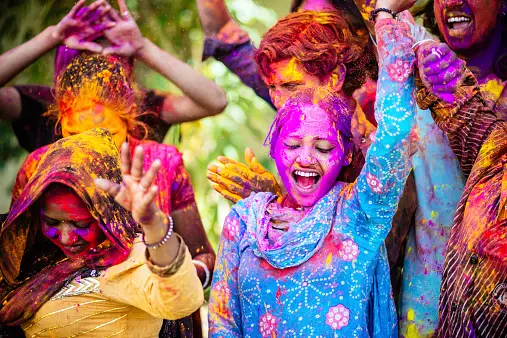
Top 10 Beliefs and Customs of Hinduism in India? Hinduism, one of the world’s oldest and most complex religions, has been a prominent cultural and spiritual force in India for thousands of years. With its diverse beliefs and rich customs, Hinduism continues to shape the way of life for millions of people in the country. In this article, we will delve into the top 10 beliefs and customs of Hinduism in India, exploring the essence of this ancient religion.
Karma – The Law of Cause and Effect
One of the fundamental beliefs in Hinduism is the concept of Karma. It is the idea that every action has consequences, and one’s current life is a result of past actions. Good deeds lead to positive outcomes, while negative actions result in unfavorable circumstances. Hindus believe that accumulating good Karma leads to a better future life, eventually breaking the cycle of reincarnation.
Reincarnation – The Cycle of Birth and Rebirth
Reincarnation, also known as Samsara, is another key belief in Hinduism. It is the belief that the soul is immortal and goes through a continuous cycle of birth, death, and rebirth. The specific form a person is reborn into is determined by their Karma from previous lives. The ultimate goal is to break free from this cycle and attain Moksha, liberation from the cycle of reincarnation.
Dharma – The Path of Righteousness
Dharma is the moral and ethical code that governs the behavior of individuals in Hindu society. It encompasses duty, righteousness, and the proper way of living. Different castes and stages of life have their unique set of Dharma, guiding individuals to lead a virtuous life. Fulfilling one’s Dharma is believed to lead to a positive afterlife.
Puja – Worship and Rituals

Puja, or worship, plays a central role in Hinduism. It involves various rituals, prayers, and offerings to the deities, seeking their blessings and protection. Hindus believe that performing regular Puja helps maintain a spiritual connection with the divine and brings prosperity and well-being.
Festivals – Celebrating the Divine
Hinduism is known for its vibrant festivals, which celebrate various deities and significant events. Diwali, the festival of lights, Navratri, the nine-night festival, and Holi, the festival of colors, are some of the most widely celebrated Hindu festivals in India. These festivals bring communities together, fostering a sense of unity and joy.
Yoga – Union of Mind, Body, and Soul

Yoga, an ancient practice originating from Hindu philosophy, is widely popular in India and around the world. It aims to achieve harmony between the mind, body, and soul through physical postures, breath control, and meditation. Yoga is not only a physical exercise but also a means to attain spiritual enlightenment.
Caste System – Social Order and Hierarchy
The caste system, though controversial, has been an integral part of Hindu society for centuries. It categorizes people into hierarchical groups based on their occupation and social status. While it has evolved over time, the caste system still influences various aspects of Indian life, including marriage and social interactions.
Pilgrimage – Spiritual Journeys
India is dotted with numerous sacred sites and pilgrimage destinations. Pilgrimage holds immense significance in Hinduism, as devotees undertake these journeys to seek blessings and connect with the divine. Some famous pilgrimage sites include Varanasi, Rishikesh, and Amarnath.
Ahimsa – Non-Violence and Compassion
Ahimsa, the principle of non-violence, is deeply rooted in Hinduism. It advocates showing compassion and refraining from causing harm to any living being. Mahatma Gandhi, a prominent figure in India’s struggle for independence, famously practiced and promoted Ahimsa as a means of achieving social and political change.
Read More: How to Analyze Fluid Dynamics In 2023
Sacred Scriptures – Wisdom and Knowledge

Hinduism has a vast collection of sacred texts, including the Vedas, Upanishads, Bhagavad Gita, and Ramayana. These scriptures contain profound wisdom, spiritual teachings, and stories of gods and goddesses. They serve as a source of knowledge and guidance for Hindus, inspiring them on their spiritual journey.
Conclusion
Hinduism’s beliefs and customs form the bedrock of Indian culture and spirituality. From the law of Karma and the cycle of reincarnation to the practice of Yoga and the celebration of festivals, each aspect of Hinduism contributes to a deep-rooted and diverse religious tapestry. Embracing the principles of Dharma, Ahimsa, and devotion, millions find solace and purpose in the ancient wisdom of Hinduism.
FAQs
What is the significance of Karma in Hinduism?
Karma emphasizes that our actions have consequences, shaping our future experiences in this life or the next.
How does Hinduism view the afterlife?
Hinduism believes in reincarnation, where the soul goes through a continuous cycle of birth and rebirth.
What role do festivals play in Hinduism?
Festivals are a way to celebrate and honor different deities and significant events, fostering a sense of community and joy.
How does Yoga relate to Hinduism?
Yoga, originating from Hindu philosophy, aims to achieve harmony between mind, body, and soul through various practices.
Is the caste system still prevalent in India?
While the caste system has evolved, it still influences various aspects of Indian society and culture.











